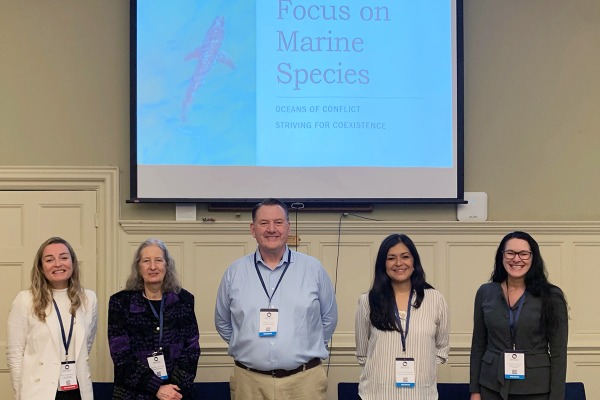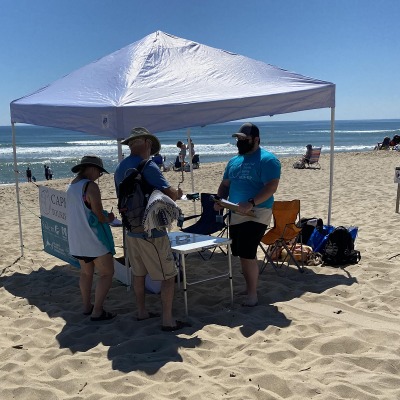Human Dimensions of Wildlife Events

The Human Dimensions of Wildlife Unit promotes coexistence with wildlife through education, research and communication. With a focus on marine, coastal and urban wildlife, the unit educates the public about human-wildlife issues, generates new research on public attitudes toward wildlife, informs policymakers about wildlife-related public values, collaborates with non-governmental organizations and facilitates wildlife-related civic engagement opportunities for the campus community.
Research in Human Dimensions of Wildlife
Human Dimensions of Wildlife research is based around understanding how people interact with and are influenced by experiences with wildlife. More specifically, human dimensions research focuses on how people’s knowledge, values, beliefs, attitudes and behaviors influence and are affected by decisions about the conservation of wildlife and management of natural resources in terms of public policy, communication, education, interpretation, and economics.
Salem State Politics, Policy and International Relations Professor Jennifer Jackman led a multi-institution partnership to conduct a study on Human Dimensions of Rebounding Populations of Seals and White Sharks on Cape Cod. The partnership, which included Salem State University, University of Massachusetts-Boston, Tufts University, Center for Coastal Studies, Cape Cod Commercial Fisherman’s Alliance and Atlantic White Shark Conservancy, surveyed representative samples of Cape Cod residents, tourists and commercial fishers. The research team included Salem State students and graduates. Survey results have been presented to natural resource managers, policy makers, research conferences, and the public, reported in the media, and published in peer-reviewed journals.
Faculty in Human Dimensions of Wildlife

The Human Dimensions of Wildlife Unit includes faculty from politics, policy and international relations, health care studies, sports and movement science, biology, education, geography, psychology and communications.
Unit faculty members have published research on voter attitudes toward coyotes, public perceptions of state wildlife management, and attitudes toward seals among voters, recreational anglers and tourists on Nantucket.
Faculty also have been interviewed about their research in radio and magazines.
These projects have provided opportunities for undergraduate and graduate students to work as research assistants and to complete internships and directed studies. For information on internships or directed studies, please contact Professor Jennifer Jackman.
Partnerships with Human Dimensions of Wildlife
The Human Dimensions of Wildlife Unit has sponsored numerous events on wildlife species, human-wildlife interactions, and both state and federal wildlife policy.
In 2018, the program sponsored a forum on Compassionate Conservation: Rethinking Large Carnivore Policies in Massachusetts, which drew representatives of 17 national, statewide and local organizations, including MSPCA, Humane Society of the United States, International Fund for Animal Welfare, Animals & Society, Cape Ann Wildlife, and Friends of Cape Cod Wildlife, municipal animal control officers and wildlife rehabilitators as well as students and faculty from Salem State University and the Tufts Center for Animals and Public Policy of the Cummings School of Veterinary Medicine, which co-sponsored the event.
